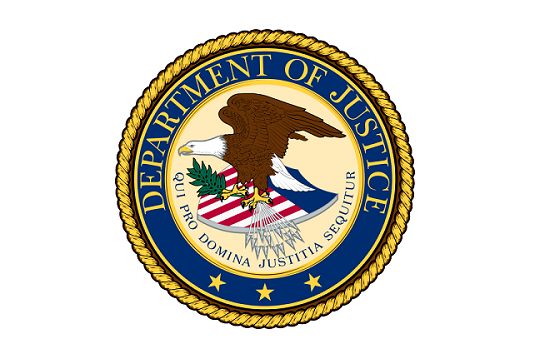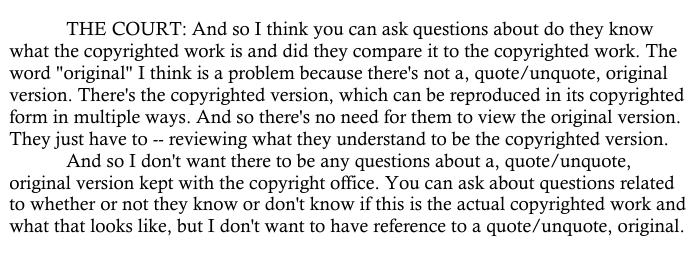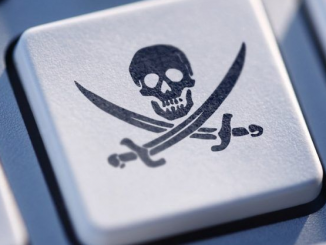
Five men found guilty of operating one of the largest pirate streaming services in the U.S. have filed requests for their convictions to be overturned. Kristopher Dallmann, Douglas Courson, Felipe Garcia, Jared Jaurequi, and Peter Huber, were convicted last month by a Las Vegas jury. Four of the men face up to 60 months in prison while Dallmann’s maximum is 48 years.
After dragging on for years due to the complexity of the case, which was further complicated by a global pandemic, last month a Las Vegas jury convicted five men behind pirate streaming service Jetflicks.
Kristopher Dallmann, Douglas Courson, Felipe Garcia, Jared Jaurequi, and Peter Huber, generated millions of dollars in revenue through Jetflicks, a subscription platform that reportedly offered more content than Netflix, Hulu, Vudu, and Amazon Prime.
All five men were convicted of conspiracy to commit criminal copyright infringement. Dallmann was further convicted of two counts of money laundering by concealment and three counts of misdemeanor criminal copyright infringement.
No sentencing date was announced but based on their convictions, Courson, Garcia, Jaurequi, and Huber face up to five years in prison, Dallmann considerably longer; a maximum of 48 years according to the Department of Justice.
Dallmann Seeks Acquittal
Having battled for every inch of ground running up to the trial, and continuing until its eventual conclusion, Dallmann is still refusing to go quietly. After first seeking acquittal during the trial, counsel for Dallmann submitted a new motion for acquittal after his conviction.
The motion states that the government’s evidence fell short of the required standard on all counts, including conspiracy to commit copyright infringement, copyright infringement by distribution, copyright infringement by public performance, and two counts in connection with money laundering.
One of Dallmann’s objections relates to an episode of the TV show Paradise. He claims that the government failed to prove that he downloaded a copy, much less distributed it to the public. Noting that the episode in question was published on December 16, 2016, Dallmann claims that a list of TV shows seized during a raid on his home showed no releases beyond December 15, 2016.
The 17-page motion leaves no stone unturned in its efforts to present both offending and evidence in completely new light. We don’t intend to detail all instances here but in the unlikely event that any gain enough traction, we will return to them later.
For now, a claim that there was insufficient evidence to show that the defendant knew that Jetflicks was unlawful, or that the retail value of infringement was more than $2,500, appear to face significant challenges.
Co-Defendants Also Seek Acquittal
Despite facing significantly lighter sentences, Dallmann’s co-defendants, Jaurequi, Courson, Huber and Garcia, have also filed for acquittal. According to the government’s omnibus response filed on Tuesday, this is the third time the men have asked the court to acquit. Having been denied on two previous occasions, counsel for the government urges the court to deny these motions “and let the jury’s sound verdict stand.”
“The evidence showed that Jetflicks generated millions of dollars in subscription income during its operation from 2007-2017, and that the site boasted the availability of more than 180,000 individual television episodes and more than 37,000 subscribers paying
between $9.99 and $16.97 on a monthly basis to access the Jetflicks collection of infringing television shows,” the response notes.
“The evidence further showed that the conspiracy successfully reproduced copyrighted television show episodes in numbers that dwarf the statutory requirements for proof of criminal copyright infringement in both numbers and value. The success in achieving the criminal goals of the conspiracy were presented in multiple ways, each of which would allow a rational trier of fact to find beyond a reasonable doubt that the conspiracy existed.”
“No Comparisons With Original Copies”
One of Dallmann’s arguments in support of his motion for acquittal is that reproduction of a copyright work (such as a TV show) can only be shown with reference to the ‘original copy’ filed at the United States Copyright Office. He states that none of the government’s witnesses viewed these reference copies but viewed “authorized copies” instead. That being the case, he believes the government fell short of the ‘best evidence’ rule.
As the government’s motion points out, this approach was tested during the trial, with the court explaining how content reproduced at Jetflicks could be compared with representative copies of the copyrighted work.

“Arguments by defendants that Jetflicks reproduced works that did not meet the substantial similarity test are not legally supported, and the jury was reasonable in determining that the conspirators intended to reproduce copyrighted episodes for streaming and downloading by Jetflicks subscribers,” the government’s response continues.
Was the Retail Value of Infringement More Than $2,500?
To support its criminal copyright infringement allegations, the government needed to show that the defendants reproduced 10 or more copies of one or more copyrighted works, with a retail value of more than $2,500 during a 180-day period. Dallmann’s motion for acquittal suggests that by failing to meet the rule on “best evidence” there is insufficient evidence to meet that standard.
The government states that based on the evidence presented, including testimony from representatives of the copyright holders “who identified copyrighted titles and conducted direct comparisons between Jetflicks’ reproductions and the legitimate broadcast works,” the jury was able to “reasonably determine that Jetflicks possessed reproductions of copyrighted works which subscribers could view.”
In respect of the scope of the content on offer, the government highlighted the following:
– The Jetflicks website claimed to have 183,285 episodes available for viewing
– An MPA/ACE scrape of the website revealed ~55,000 titles owned by studio members
– Evidence showed that ~89,000 files were processed by Sickrage/Sickbeard software.
– A list relating to a seized storage device ran to 30,000 video files
“Each of these snapshots show the sheer size of the Jetflicks library of infringing works at a single moment, spanning across all times each co-conspirator was involved, thus satisfying the 180-day time window for each defendant,” the government adds.
At 23 pages long, the government’s response is comprehensive. It further states that since there was sufficient evidence to convince the jury that the defendants engaged in a conspiracy to commit criminal copyright infringement, all calls for acquittal should be denied.
Dallmann’s motion for judgment of acquittal (pdf)
The U.S. Government’s omnibus response to the motions for acquittal (pdf)
Source: ![]() TorrentFreak.com
TorrentFreak.com






Be the first to comment